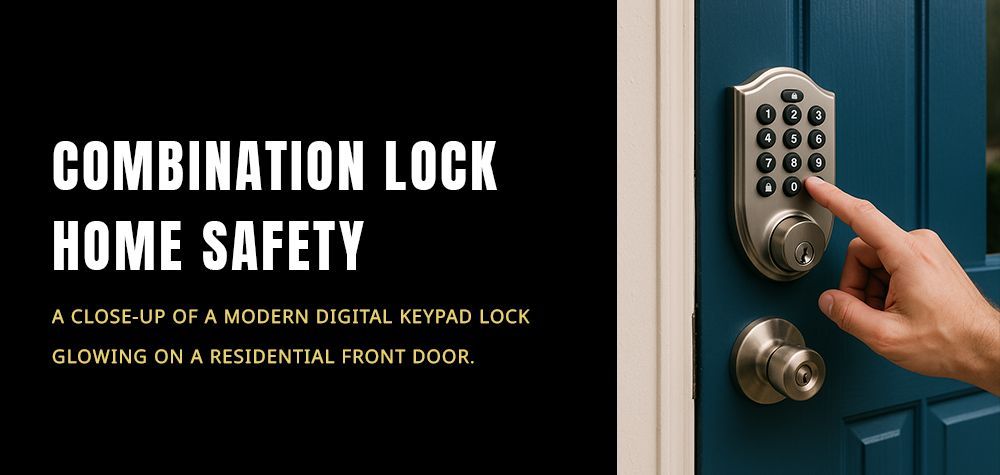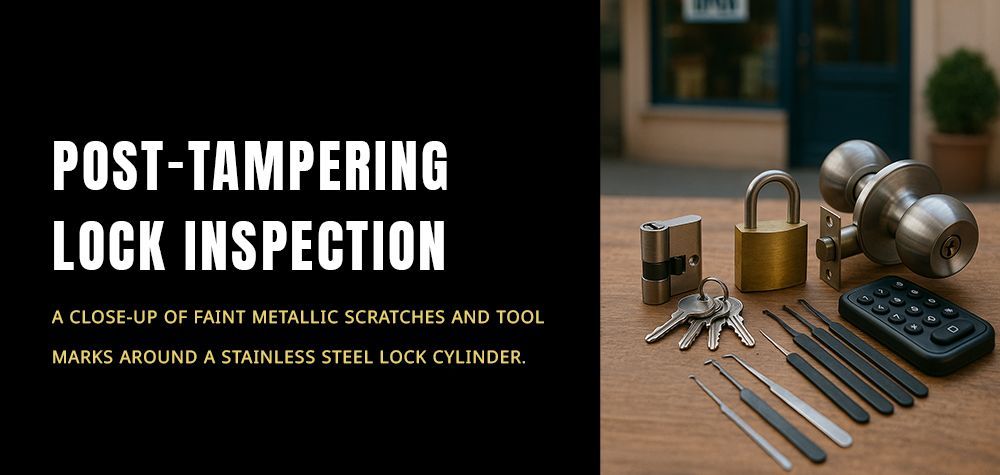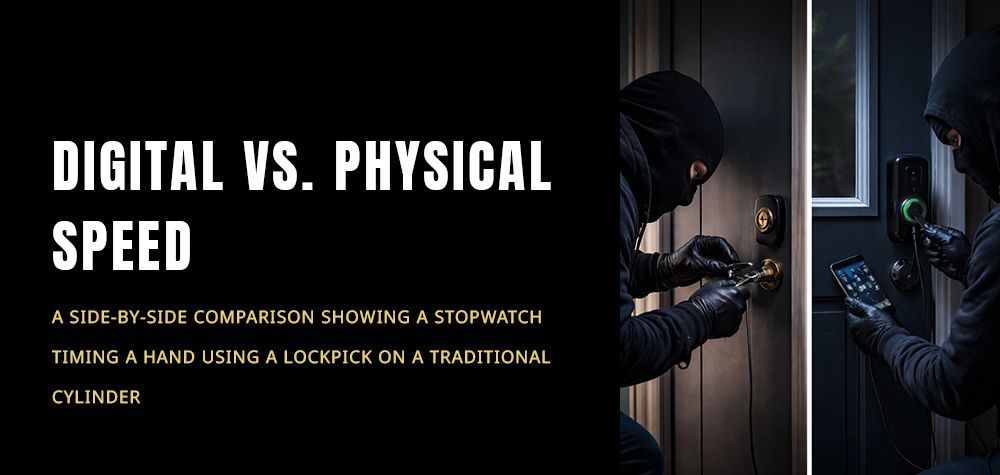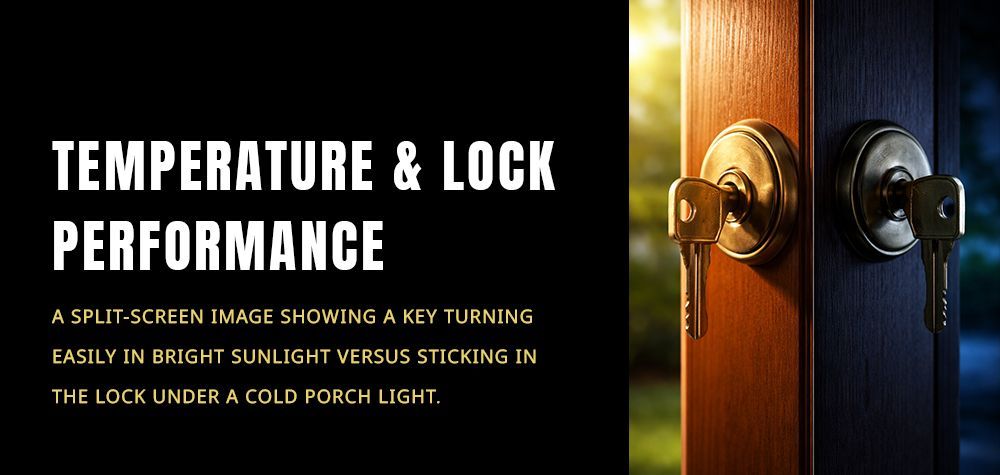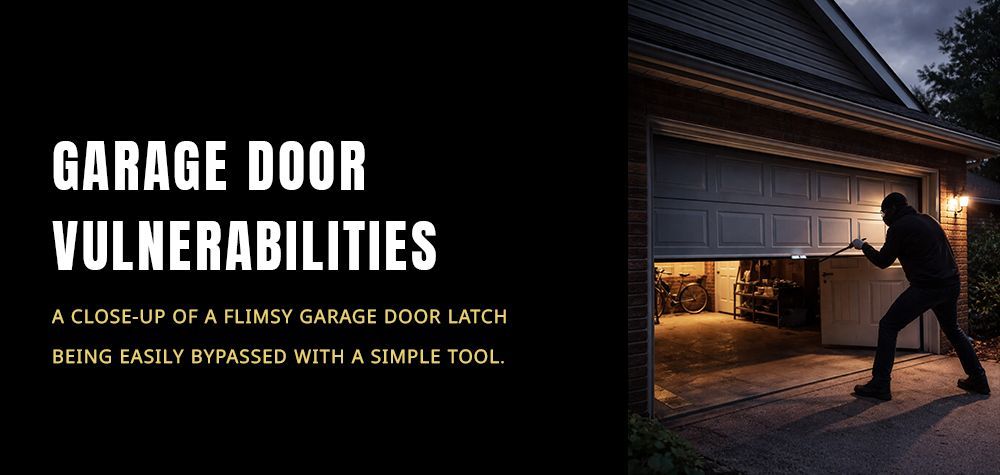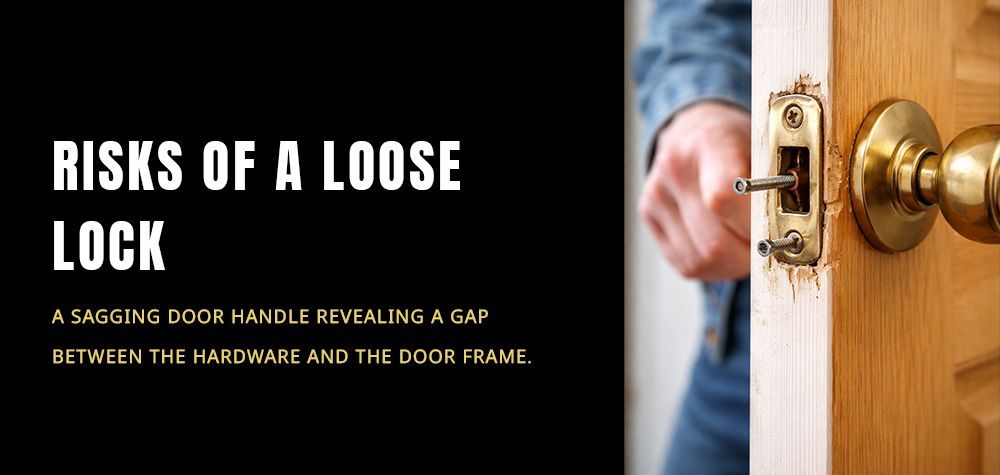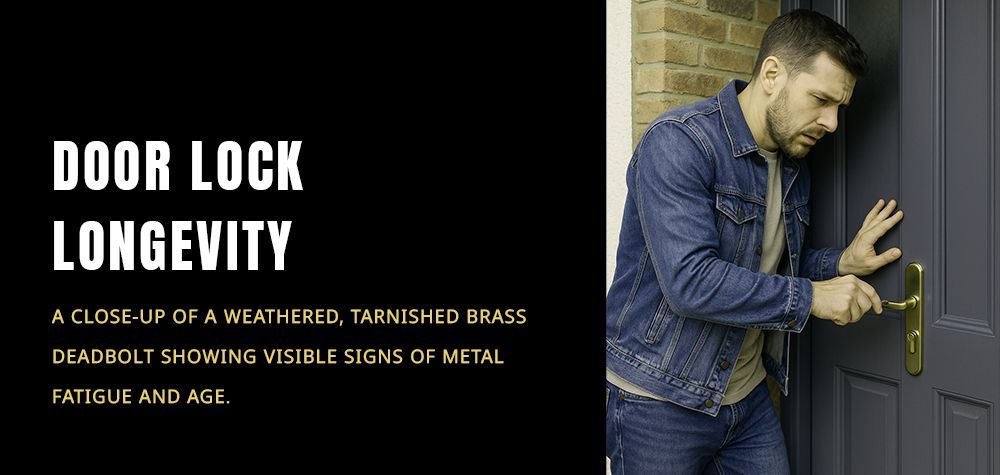Is Your Keypad Lock Vulnerable to Code Guessing?
In today’s age of smart homes and digital convenience, keypad door locks have quickly become a go-to solution for families, renters, and businesses alike. They offer keyless entry, customizable access codes, and the ability to lock or unlock doors with a simple touch. But like every innovation, keypad locks come with their own vulnerabilities — one of the most worrying being code guessing.
If you’ve ever wondered, “Is my keypad lock really secure?” or “Could someone just guess the code and get in?”, you’re not alone. In this article, we’ll explore what makes keypad locks susceptible to code guessing, the risks involved, step-by-step solutions to enhance their security, the challenges users often face, and expert-backed tips to protect your space.
By the end, you’ll not only understand the problem — you’ll be armed with practical, actionable ways to prevent it.
How to childproof your door locks effectively
Why Code Guessing Is a Real Threat
Code guessing might sound like something out of a spy movie, but it’s a very real tactic used by opportunistic intruders. With the rise of digital door locks, criminals no longer need to pick a traditional lock — they just need to be lucky (or clever) enough to input the right combination.
One of the main reasons keypad locks are vulnerable is human behavior. We tend to choose simple, memorable codes — like 1234, 0000, or our birth year. These predictable patterns are the first combinations any experienced thief will try. Worse yet, some people never change the factory-set code, making their home an easy target.
Another concern is wear and tear. Over time, the most-used digits on your keypad can become worn, discolored, or smudged — subtly giving away which numbers are part of the code. All a person needs to do then is try combinations using only those numbers. It's easier than it sounds, especially with four-digit codes.
Common Challenges Faced by Keypad Lock Users
Before diving into the fixes, it’s helpful to understand the typical obstacles homeowners face when trying to secure their keypad locks.
Limited Code Options
Some basic models only allow four-digit codes, which drastically reduces the number of combinations. A determined person can try all possible variations within a few hours, especially if the lock doesn’t have a lockout feature.
Lack of Automatic Lockouts
Many cheaper models don’t disable after several incorrect attempts. Without a delay or lockout mechanism, someone can keep guessing without consequence — essentially turning your lock into a puzzle instead of a security tool.
Reuse of Common Codes
Most people select familiar sequences because they’re easier to remember. Unfortunately, this habit makes it easier for intruders to guess. Even tech-savvy users sometimes overlook this flaw.
Visibility of Wear
The digits you use the most tend to show signs of fading or grease marks over time. Anyone observant enough can take note of these clues to narrow down their options.
Step-by-Step Solutions to Protect Your Keypad Lock From Code Guessing
Let’s now look at practical ways to fortify your keypad lock. These aren’t just generic tips — they’re specific actions you can take today to improve your lock’s resistance to guessing.
Step 1: Choose an Unpredictable Code
It might seem obvious, but many people fail to do this. Stay away from birthdays, anniversaries, repeated digits, and simple patterns like “2580” (a straight line down the middle of the keypad).
Instead, pick a random combination of digits that don’t relate to anything personal. You can use a secure password generator or even roll dice to come up with a number. Just make sure it’s not something someone could easily connect to you.
Step 2: Regularly Change Your Access Code
Changing your code every 3 to 6 months significantly reduces the chance of unauthorized entry. If someone has been quietly observing your home or your keypad, a regular reset ensures that any insight they’ve gained quickly becomes outdated.
Make it part of your home maintenance routine, just like changing smoke detector batteries.
Step 3: Wipe Down Your Keypad Regularly
This might sound trivial, but fingerprints, smudges, and grease can tell a story. A quick wipe-down after use or every evening can remove telltale signs of your code — especially useful for homes with children who tend to press the same buttons hard or with sticky fingers.
Step 4: Enable Lockout Features
Many mid- to high-end keypad locks offer built-in security features like temporary lockouts after a certain number of failed attempts. Make sure this feature is enabled. Some locks also send alerts to your phone if incorrect codes are repeatedly entered — a huge plus for remote monitoring.
If your current model doesn’t support lockout or notifications, it might be worth upgrading.
Step 5: Use Dummy Codes (If Your Lock Supports It)
Some advanced keypad systems allow you to enter extra digits before or after the actual code — confusing anyone who might be looking over your shoulder. For example, if your code is “3492,” you could type “85349264” and the door would still unlock.
It’s a great way to mask the actual code while still gaining access.
Risks of Ignoring This Security Gap
Failing to address keypad lock vulnerabilities can lead to more than just a break-in. It can create a false sense of security. Many homeowners believe they’re protected just because they’ve moved away from traditional keys — but if their digital lock has weak code security, they’re just as exposed.
Worse still, a successful code guesser doesn’t leave evidence behind. There’s no broken lock, no forced entry — just someone walking in. That makes it harder to trace and prosecute the crime afterward.
And then there’s the emotional toll. A home should be your safest space. When that’s violated, especially because of something preventable, it’s difficult to shake the feeling of vulnerability.
Best anti-theft car lock devices
What the Experts Recommend
Security professionals emphasize one consistent message: treat your keypad code like a password. That means making it strong, unpredictable, and changeable. Just like you wouldn’t use “password123” for your email, don’t use “1234” for your front door.
Experts also encourage homeowners to go beyond keypad locks. Pair them with motion-detecting cameras, doorbell alerts, or even smart home integrations. If someone does try to guess your code, you’ll know about it instantly — and so will the authorities, if needed.
Professional locksmiths often recommend upgrading to models that feature rolling codes (where the access code changes every time, like in key fobs), or biometric options like fingerprint scanning — especially for homes in high-traffic or high-crime areas.
Preventive Measures to Keep Your Keypad Lock Secure
Let’s wrap this up with some smart, ongoing habits that keep your keypad lock — and your home — safe over time.
First, audit your keypad locks just like you would other home systems. Check if the code is still secure, whether the keypad is showing wear, and whether your family members are following the protocol.
Second, make code security part of your conversations with guests and family. If you give out a code to a friend, babysitter, or tenant, be sure to change it after they no longer need access. Don’t rely on people’s honesty — protect yourself by resetting codes when needed.
Lastly, stay informed. The world of smart home tech is always evolving. New features are constantly emerging to address the shortcomings of older models. What worked last year may now be outdated. Keeping your lock systems modern is one of the best investments you can make in your home’s security.
Conclusion: Your Keypad Lock Is Only as Strong as Your Habits
Keypad locks offer a sleek, convenient way to manage access to your home — but they’re not foolproof. The risk of code guessing is real, but preventable. Most breaches happen not because the technology failed, but because we failed to use it wisely.
By taking the time to understand how your keypad works, choosing smart codes, updating them regularly, and implementing basic security habits, you can transform your lock from a potential vulnerability into a solid line of defense.
In the end, a secure home isn’t about gadgets — it’s about awareness. So the next time you punch in your access code, ask yourself: “Would it be easy for someone else to guess?” If the answer is yes — it’s time to change the code, and maybe the mindset too.
Call Us Any Time!


